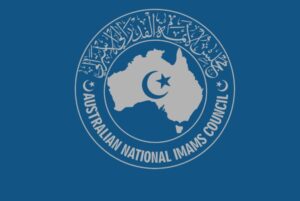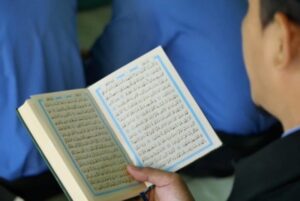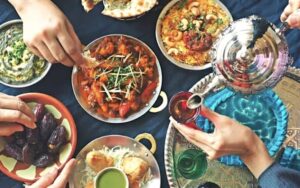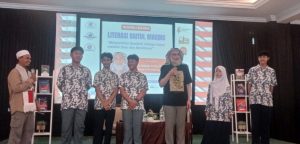By: Sajadi, MINA Journalist
يَا أَيُّهَا الَّذِينَ آمَنُوا كُتِبَ عَلَيْكُمُ الصِّيَ present
“O you who believe, it is prescribed for you to fast as it was prescribed for those before you, so that you may become pious” (QS. Al-Baqarah [2]: 183).
Through this noble verse, Allah Subhanallahu wata’ala explains, fasting in the month of Ramadan is obligatory for His servants with the aim that they become pious people.
Also Read: Verses of the Universe in Gaza: The Unyielding Light of Faith
Imam Ibnu Jauzi said, fasting is the fastest way to become a pious person.
This is because people who fast are prohibited from committing disobedience which if they do so will damage the reward of their fast.
People who fast are prohibited from backbiting, lying, fighting against each other, looking at the opposite sex without intent, saying dirty words, and insulting others. This is the argument of Imam Ibn Jauzi that fasting people will lead to piety to Allah Subhanallahu wata’ala.
Therefore, Ramadan is the right moment to improve self-quality to become pious people.
Don’t let this glorious month pass without any change for the better, even just getting hungry and thirsty as the words of the Prophet sallallaahu ‘alaihi wasallam:
Also Read: Prophet Sulaiman Alaihi Salam, the Greatest Muslim King of All Time
رُبَّ صَائِمٍ حَظُّهُ مِنْ صِيَامِهِ الجُوْعُ وَالعَطَشُ
“How many people are fasting but he does not get from his fast except hunger and thirst.” (Narrated by Ath Thobroniy).
From this hadith, it means that fasting is not only refraining from the temptation of food and drink, but also controlling lust and the opportunity to increase both obligatory and sunnah worship.
Some practices that can be done in the month of Ramadan to improve self-quality, such as night prayers, reading the Koran, i’tikaf, umrah, feeding the poor, and others.
Also Read: Imaam Yakhsyallah Mansur: Surah At-Tin Indicates the Command to Liberate Al-Aqsa
These various efforts aim to improve our quality as believers. Quality is very important in Islamic teachings. In fact, in his book Fiqh Prioritas, Yusuf Qardawi describes Islam as prioritizing quality over quantity.
By basing their understanding on the Koran, scholars divide human qualities into three. The first is human beings who are tyrannical and nafsih, namely people who have no guiding values and norms in their lives. He became morally impaired. His actions are based on his ego and self-interest.
The second human quality is muqtasid, that is, people who experience a kind of duality of personality. One time he carried out religious orders such as performing prayers and performing hajj. But at other times he commits disobedience.
The third human quality is called sabiq bil-khairat, namely Muslims whose life orientation is to do good and truth in accordance with the nature of Allah and the teachings of the Prophet. His life is commander in chief by religious rules and Islamic values. His life is dedicated to the worship of Allah.
Also Read: Imaam Yakhsyallah: Nurture Love for the Prophet, One Will Be with Whom One Loves
Fasting in the month of Ramadan can actually be used to achieve the quality of sabiq bil-khairat and make believers people who are patient and have the ability to control themselves. (T/RE1)
Mi’raj News Agency (MINA)
Also Read: Friday Sermon: Emulating the Firmness of the Prophet in Struggle










![Israeli tanks and APC’s gather by the Israeli – Lebanese border. Amid Israel’s escalating campaign against Hezbollah in Lebanon on September 30, 2024. [Erik Marmor/Getty Images]](https://en.minanews.net/wp-content/uploads/2024/10/IMG_20241001_203226-300x197.jpg)






















 Mina Indonesia
Mina Indonesia Mina Arabic
Mina Arabic